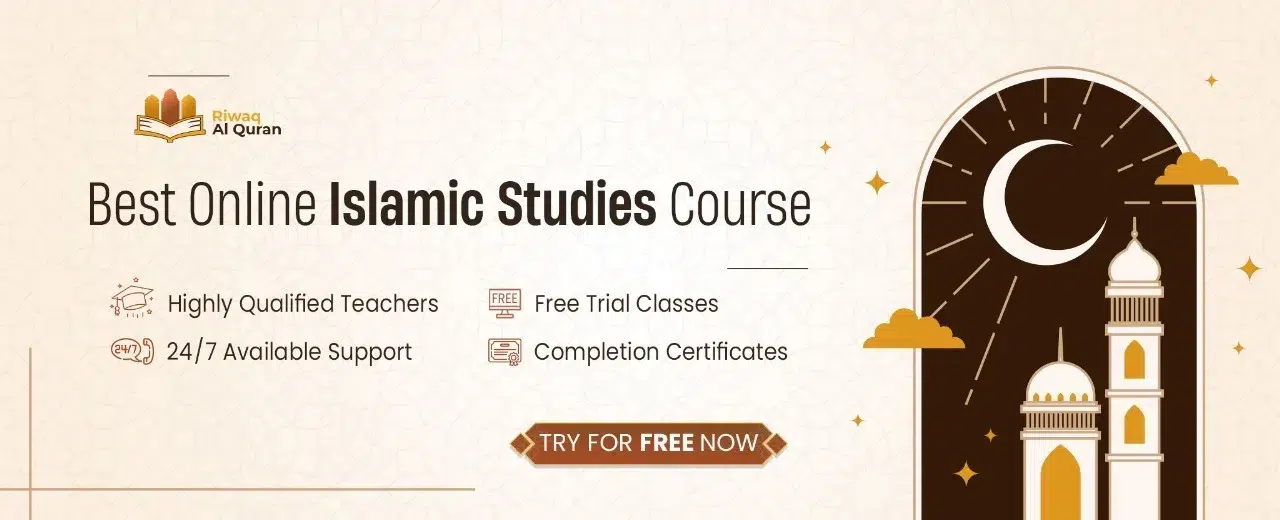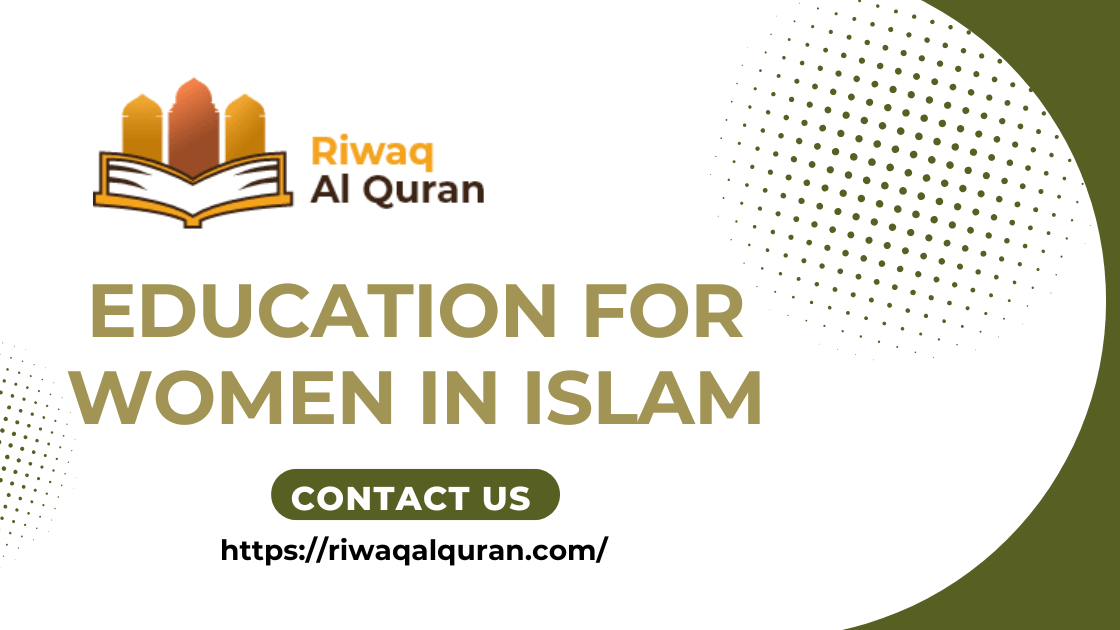In the modern world, the importance of education for women is universally acknowledged. Yet, more than 1,400 years ago, Islam had already established the right and duty of education for all—men and women alike. From the very first verse revealed to Prophet Muhammad ﷺ, “Read in the name of your Lord who created” (Qur’an 96:1), the message was clear: knowledge is the foundation of faith, progress, and human dignity.
In this article, we will explore education for women in Islam, the importance of female education in Islam and its advantages, answer the question “What does Islam say about women’s education?”, and clarify whether Islam and girls’ education is obligatory or forbidden.
Table of Contents
What Does Islam Say About Women’s Education?

Islam views women’s education as a sacred right and a shared duty with men. From the first Qur’anic command to “Read,” learning has been a universal obligation for all Muslims.
1. Education Is a Right for Every Muslim
The Qur’an and Sunnah make it clear that seeking knowledge is not limited to men. The Prophet ﷺ said, “Seeking knowledge is obligatory upon every Muslim” (Ibn Majah). The term “Muslim” here is universal, encompassing both men and women without exception.
2. Early Muslim Women Were Scholars and Teachers
From the very beginning of Islam, women were active in learning and teaching. Aisha bint Abi Bakr was a leading authority in Hadith and Fiqh, and many companions sought knowledge from her. This historical precedent proves that Islam values and honors female scholarship.
3. Knowledge Strengthens Faith and Society
Educated women are better equipped to understand Islamic teachings, fulfill their religious obligations, and contribute positively to society. In Islam, learning is seen as a way to get closer to Allah and serve the Ummah effectively.
4. Denying Women Education Contradicts Islamic Principles
There is no verse or authentic hadith that forbids women from seeking education. In fact, withholding education from women goes against the Qur’anic call to learn and the Prophetic tradition of encouraging knowledge for all.
Importance of Female Education in Islam and Advantages
The importance of female education in Islam is rooted in the belief that educating a woman means educating an entire generation. Islam recognizes that women play a vital role in shaping society, not only as mothers but also as educators, professionals, and leaders.
Advantages of Female Education in Islam:
1. A Divine Command and Religious Duty
In Islam, seeking knowledge is an obligation for both men and women. Educating women fulfills this divine command and strengthens their ability to practice and share the teachings of Islam.
2. Raising Righteous Generations
An educated mother is better equipped to instill Islamic values, moral discipline, and critical thinking in her children, shaping future generations of the Ummah.
3. Strengthening the Muslim Community
When women are knowledgeable, they contribute to society not only as caregivers but also as professionals, scholars, and community leaders, enriching the collective progress of the Ummah.
4. Economic and Social Empowerment
Education opens doors for women to support themselves and their families, reduce poverty, and play an active role in community development while upholding Islamic values.
5. Promoting Justice and Protecting Rights
Knowledge empowers women to understand their rights in Islam, protect themselves from injustice, and actively participate in decision-making within the family and society.
6. Improving Health and Well-Being
Educated women are more aware of health, nutrition, and family welfare, which directly contributes to the physical and emotional well-being of their households.
Islam and Girls’ Education: Obligatory or Forbidden?
There is no basis in the Qur’an or authentic Sunnah to suggest that girls’ education is forbidden. On the contrary, seeking knowledge is a religious obligation (fard) for both genders. Denying women education goes against the core principles of Islam.
Historically, women like Umm al-Darda, a famous jurist of Damascus, and Fatima al-Fihri, founder of the world’s oldest university (Al-Qarawiyyin in Morocco), are shining examples of Islam’s legacy of female scholarship.
Therefore, Islam and girls’ education are inseparable—it is not just allowed; it is an act of worship and a societal duty.
Know more about the Quranic Arabic Course
The Role of Women as Knowledge Carriers in Islamic History
From the earliest days of Islam, women have been vital contributors to the preservation and spread of knowledge. Their role as scholars, teachers, and institution builders shows that female education is deeply embedded in Islamic history.
1. Preservers of the Prophet’s Teachings
Women were central to preserving the legacy of Prophet Muhammad ﷺ. Aisha bint Abi Bakr narrated over 2,000 Hadiths, including details about his private life and worship—knowledge only she could transmit. Her precise memory and deep understanding made her one of the greatest authorities in Islamic jurisprudence.
2. Scholars and Jurists Across the Muslim World
From the early centuries to the Ottoman era, women like Umm al-Darda in Damascus and Fatima bint Sa’d al-Khayr in Baghdad were recognized as jurists and teachers. They issued fatwas, taught in mosques, and were consulted by rulers and scholars alike.
3. Founders of Educational Institutions
Fatima al-Fihri stands out as the founder of Al-Qarawiyyin University in Morocco in 859 CE, an institution that still operates today. Her vision ensured that knowledge would be accessible for centuries, benefiting students from around the globe.
4. Influencers in Literary and Scientific Fields
Beyond religious sciences, Muslim women contributed to medicine, poetry, and calligraphy. Rufaida al-Aslamiyya is remembered as the first Muslim nurse and medical educator, training women in healthcare during the Prophet’s time.
5. Teachers of Great Male Scholars
Many leading male scholars—including Imam al-Bukhari and Ibn Hajar al-Asqalani—studied under female scholars. These women were essential links in the chain of Hadith transmission, ensuring accuracy and authenticity.
6. Role Models for Future Generations
The examples of these pioneering women confirm that education for women in Islam is not a modern idea but a deeply rooted tradition. They prove that Islam not only allows but also honors female scholarship and its role in shaping the Ummah.
The Impact of Educated Women on the Muslim Ummah
Educated women are a powerful force for positive change in the Muslim Ummah. Their knowledge shapes families, strengthens communities, and preserves the values of Islam for future generations.
Building Stronger Families
An educated woman can provide her children with both religious and worldly knowledge, creating a strong foundation for their moral and intellectual growth.
Nurturing Future Leaders
When women are equipped with authentic Islamic knowledge, they inspire and raise a generation of leaders, reformers, and visionaries who benefit the Ummah.
Strengthening Community Values
Knowledgeable women help uphold Islamic values in their communities by promoting justice, compassion, and adherence to faith.
Advancing Social and Economic Progress
Educated women contribute to the workforce, charitable efforts, and community initiatives, driving positive change across the Muslim world.
Preserving the Islamic Identity
Through teaching and example, women play a vital role in passing down the beliefs, practices, and traditions that safeguard the identity of the Ummah.
Read more about our Best Islamic Studies Online Course
Riwaq Academy’s Role in Empowering Women through Islamic Education
- Making Knowledge Accessible to All: Providing online Qur’an, Arabic, and Islamic studies programs so women can learn anytime, anywhere.
- Preserving Authentic Islamic Learning: Offering courses rooted in Qur’an and Sunnah, taught by qualified teachers using effective modern methods.
- Encouraging Lifelong Learning for Women: Welcoming women of all ages to deepen their understanding of Islam at any stage of life.
- Supporting Women’s Roles in the Ummah: Equipping women to be confident role models, family educators, and active community members.
- Continuing the Legacy of Female Scholarship: Inspiring students to follow the example of great Muslim women scholars throughout history.
Join Riwaq Academy Today
Empower yourself with the knowledge that Islam honors and encourages. Enroll in our Qur’an, Arabic, and Islamic studies courses to follow in the footsteps of great Muslim women scholars.
Your journey to learning and inspiring others starts now—let Riwaq Academy be your guide.

Learn Quran, Arabic And Islamic Studies Online With The Best Native Tutors
Riwaq Al Quran is a comprehensive online platform that offers personalized Quran, Arabic and Islamic Studies Online classes for individuals of all ages and backgrounds.
Their experienced instructors use a structured curriculum to cover Tajweed, Tafsir, and Memorization, providing easy and effective access to learning the Quran.
The advanced online classes allow for seamless communication and interaction between students and teachers. Join Riwaq Al Quran for a deeper connection with the Quran.
We offer several courses such as:
- Online courses for kids.
- Online Quran classes for kids and adults.
- Online Arabic courses
- Online Ijazah courses
- Online Islamic Studies courses.
Here are a sample of our set of Quran Courses that will be helpful for you:
- Online Tafseer Course: Delve into Quranic meanings with our insightful online Tafseer course.
- Noorani Qaida Online: Learn Quranic basics efficiently through our Noorani Qaida online program.
- Online Quran Recitation Course: Enhance Quranic recitation skills through our expert-led online course.
- Online Tajweed Classes: Master Tajweed rules for beautiful Quranic recitation in online classes.
- Quran Memorization Online Course: Memorize the Quran effectively with our specialized online memorization course.
- Online Qirat Course: Explore diverse Qirat styles with our comprehensive online Qirat course.
- Online Quran Classes for Kids: Nurture a love for the Quran in kids through interactive online classes.
Conclusion
Education for women in Islam is not a modern innovation—it is a divine right established over 14 centuries ago. The importance of female education in Islam and its advantages reach far beyond personal benefit, touching every aspect of community life.
To answer the question, “What does Islam say about women’s education?” —it says it is obligatory, honorable, and transformative. And to clarify Islam and girls’ education obligatory or forbidden—it is obligatory, encouraged, and blessed.
At Riwaq Academy, we are honored to uphold this tradition, ensuring that every Muslim woman has the opportunity to seek knowledge, grow in faith, and inspire future generations.


































